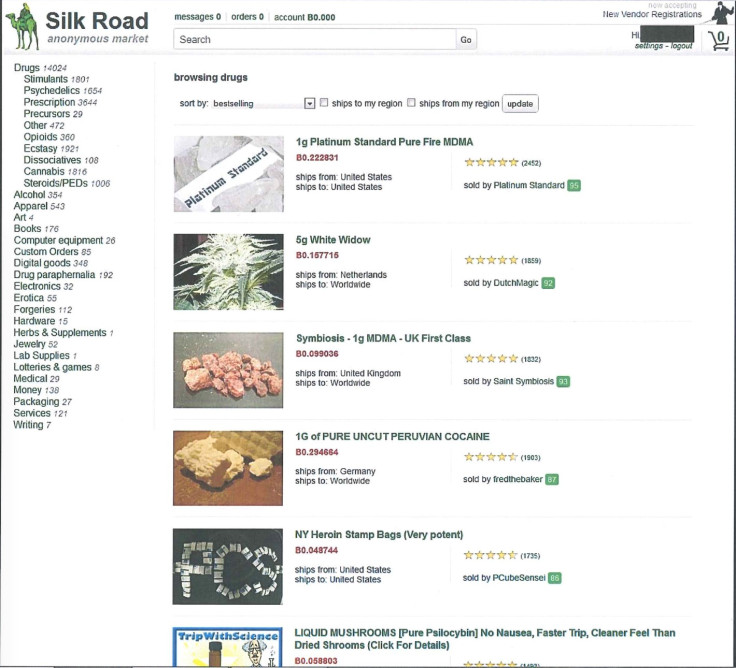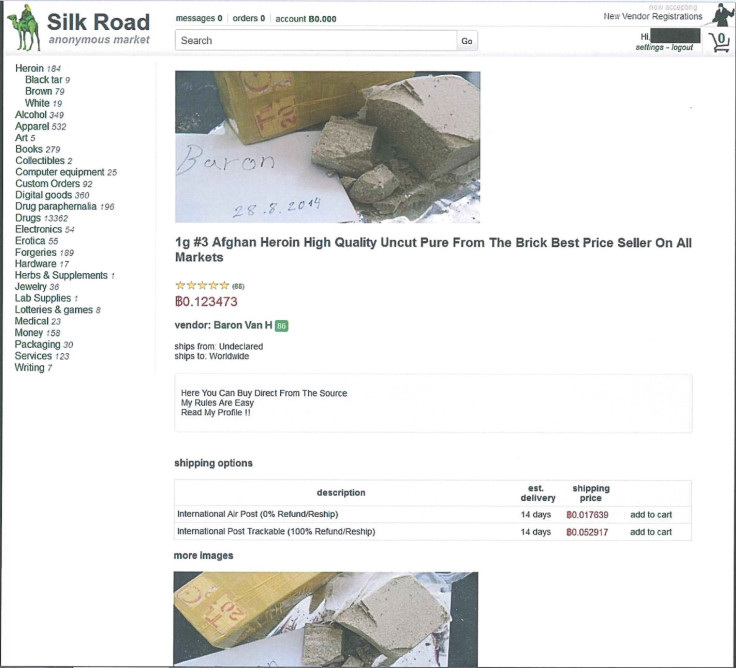Silk Road 2.0 - What Illegal Items and Services did the Black Market Website Sell?

Silk Road 2.0 was a website on an area of the internet known as The Dark Web, hidden from search engines like Google and only accessible through an anonymised web network called Tor using specialised browsers.
The website replaced the original Silk Road, which was shut down by the FBI in October 2013, along with the arrest of its alleged owner, Ross Ulbricht, who called himself The Dread Pirate Roberts.
Dark web explained
The dark web is a section of the internet that is not indexed by search engines such as Google, and not easily navigated to using a standard web browser.
Accessing the dark web requires specialised knowledge and software tools. An example of this is content only accessible by using the Tor software and anonymity network, which while protecting privacy, is often associated with illicit activities.
Weeks after it was shuttered, the Silk Road was back as version 2.0, until that too was closed by the FBI on 5 November, 2014, in conjunction with the arrest of its alleged owner and former SpaceX employee Blake Benthall, 26.
Silk Road 2.0 and its predecessor were known as the place to go online for illegal drugs, firearms, fake identification, stolen credit card details and much more. Published by the FBI, Benthall's indictment reveals exactly what was being sold through the site.
Vincent D'Agostino, a special agent with the FBI, states that, in late October, he "observed that the Silk Road 2.0 marketplace was dominated by offerings for illegal narcotics, with 14,024 different listings offering the sale of 'drugs'."
This included among other things: 1,654 listings for psychedelics; 1,921 for ecstasy; 1,816 for cannabis; and 360 for opioids (pain relievers, like morphine).
It is alleged by the FBI that Silk Road 2.0 had 150,000 users, took monthly sales of $8 million, and that Benthall took a cut of between 4% and 8% per transaction, earning a commission of $400,000 per month.

How much did the drugs cost?
According to the indictment written by D'Agostino, a listing for 100 grams of "Afghan Heroin Brown Powder" viewed in mid-September cost 9.7 bitcoins, or approximately $4,555 (£2,900) at the day's exchange rate.
At the same time, 5 grams of cocaine described as "Highest Purity Cocaine - Direct From Colombia" and available for shipment from the US to anywhere in the world was priced at 1.04 bitcoins, or $488.
Fake documents
Other than drugs, the Silk Road 2.0 also sold forged identity documents, such as a fake Danish passport described as having "all the security features and original pages" and priced at 5.14 bitcoins ($2,414).
A fake New Jersey driver's license, including all holograms, was 0.21 bitcoins ($98).
Hacking services
Goods sold through Silk Road 2.0 weren't limited to physical items sent in the post. Services were also for sale, including website hacking for 1.32 bitcoins ($624). The service would involve the seller "investing four to seven days" into hacking the website, and priced at 1.32 bitcoins ($624), with half to be paid before and half after the hack is completed.
Finally, a method for hacking Gmail accounts was listed for just 0.09 bitcoins, or $42.
© Copyright IBTimes 2024. All rights reserved.






